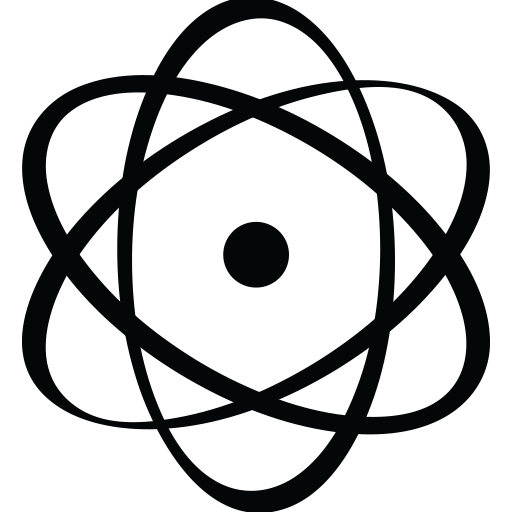Projects
I'm a research associate at the Center for STEM Learning and the Physics Education Research group at CU Boulder. My work at CU focuses on community and cultural change as mechanisms for improving undergraduate education in STEM departments.
I started at CU in the fall of 2013 after getting my Ph.D. in physics in the Whaley group at UC Berkeley, where I studied systems of ultracold atomic gases using theoretical and computational methods. While at Berkeley, I began my transition into STEM education through my work with the Berkeley Compass Project.
My current and past projects include:- Departmental Change
- Faculty Online Learning Communities
- The Compass Project & The Access Network
- Ultracold Atomic Gases
Departmental Change
Through the AAU-funded STEM Education Initiative and an NSF award on which I am PI, I am part of a team facilitating cultural change in STEM departments at a large research-intensive university, with the goal of improving undergraduate education. This project has many facets: we are working in multiple departments and with different parts of the administration in a variety of ways. Papers that describe the overall project framework and research to date are here and here. Components of this project include:
- Facilitating Departmental Action Teams (DATs), teams of faculty members (and others) from the same department working collectively to address a broad-scale issue of concern related to undergraduate education in their departments (e.g., the underrepresentation of women and/or people of color, coordination of learning goals across courses). These teams focus on creating departmental change that is sustainable and that has the potential to impact faculty culture in the long term. They also help the DAT participants to see the value of collective action in trying to make change. See DAT-related papers here and here.
- Helping faculty and administration to develop a Teaching Quality Framework. This framework focuses on assessing teaching as a scholarly activity using evidence gathered from faculty members, their students, and their peers. It is designed to provide a common language across campus for making merit, tenure, and promotion decisions, with the intent for individual departments to customize the details to fit their disciplinary norms. Ideally, this framework will shift the culture on campus around what it means to be an excellent teacher and simultaneously provide faculty with formative feedback to develop as teachers.
Faculty Online Learning Communities
The Workshop for New Physics and Astronomy Faculty provides a path for new faculty to become more effective teachers by learning about major pedagogical advances that have been made in physics education. However, evidence suggests that knowledge and good intentions are not enough for these faculty members to sustain reforms that they make in their classrooms if they don't have a support structure to help them persevere through setbacks and celebrate their successes. Faculty Online Learning Communities (FOLCs) are virtual communities of faculty from the same New Faculty Workshop who meet regularly during the academic year to form that support network for each other. I am part of the research team that is creating and studying the FOLCs to understand both what it takes to facilitate a successful community of this type and what impact such a community can have on its participants. See FOLC-related papers here and here.
 The Compass Project & The Access Network
The Compass Project & The Access Network
One of my proudest accomplishments at Berkeley was co-founding the Berkeley Compass Project, a student-run organization dedicated to supporting underrepresented physics students in their undergraduate careers through strong community, comprehensive mentoring, and classroom experiences that help them identify as real scientists.
I wore many hats as part of Compass: I developed the curriculum and taught in Compass's Summer Program for incoming freshmen in 2007 and taught Compass's Introduction to Scientific Modeling course in the fall of 2011 and fall of 2012, mentored six Compass students, coordinated the 2008 and 2009 Summer Programs, organized leadership retreats, participated in fundraising, and formalized Compass's consensus-based decision making model and leadership structure.
For my work with Compass, I received the Berkeley Physics Department's Student Service Award in 2013. Compass itself won the inagural APS Award for Improving Undergraduate Physics Education in 2012. I have also co-authored several articles about Compass, including a paper for the 2012 Physics Education Research Conference proceedings (a preprint is here), an article in Physics Today Online, and a guest blog post on Cosmic Variance.
Since Compass's founding, several other programs inspired by Compass have emerged around the country, including one at Boulder named CU-Prime that I have been advising. Many of the leaders and former leaders of these programs have created a national network of such programs called the Access Network. We have received a $330,000, 3-year grant from the National Science Foundation (grant numbers 1506190, 1506129, and 1506235) to fund the creation of Access.
 Ultracold Atomic Gases
Ultracold Atomic Gases
At Berkeley, my dissertation research was a theoretical and computational study of Bose-Einstein condensates (BECs) trapped in a double-well potential. BECs are atomic gases at temperatures so low that most of the atoms in the gas all enter the same low-energy quantum state, which allows the BEC to exhibit macroscopic quantum effects. My work focused on studying squeezing, a quantum effect in which the fluctuation in the difference between the number of atoms on the two sides of the double well can decrease if the interaction strength between the atoms is increased. I studied this effect both theoretically, using multimode approximations to compute the ground state properties of the system, and computationally, using quantum Monte Carlo techniques to do the same. One paper has resulted from this research and is currently in preparation (see preprint here).